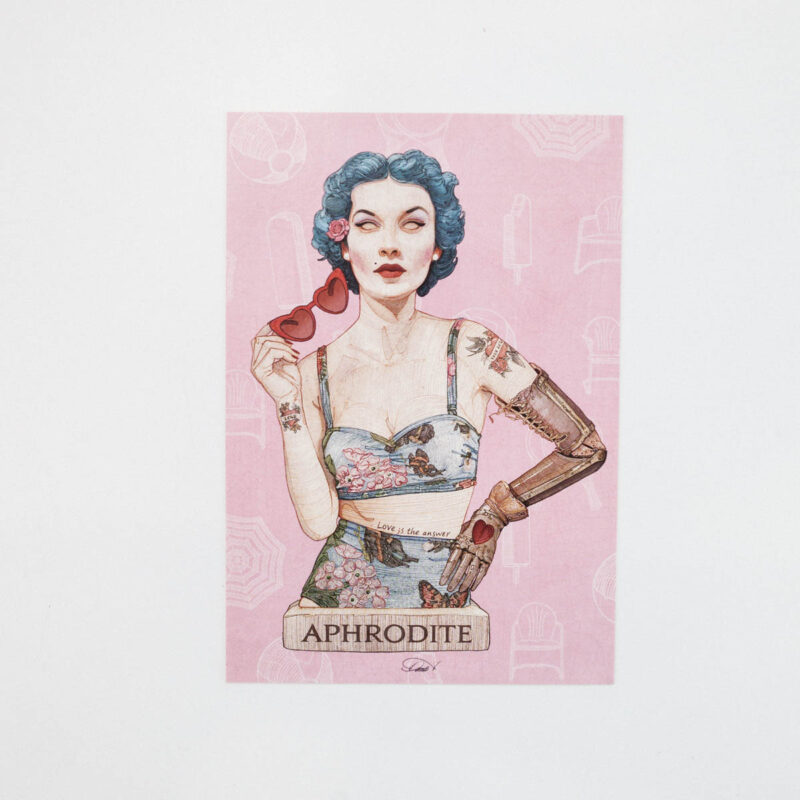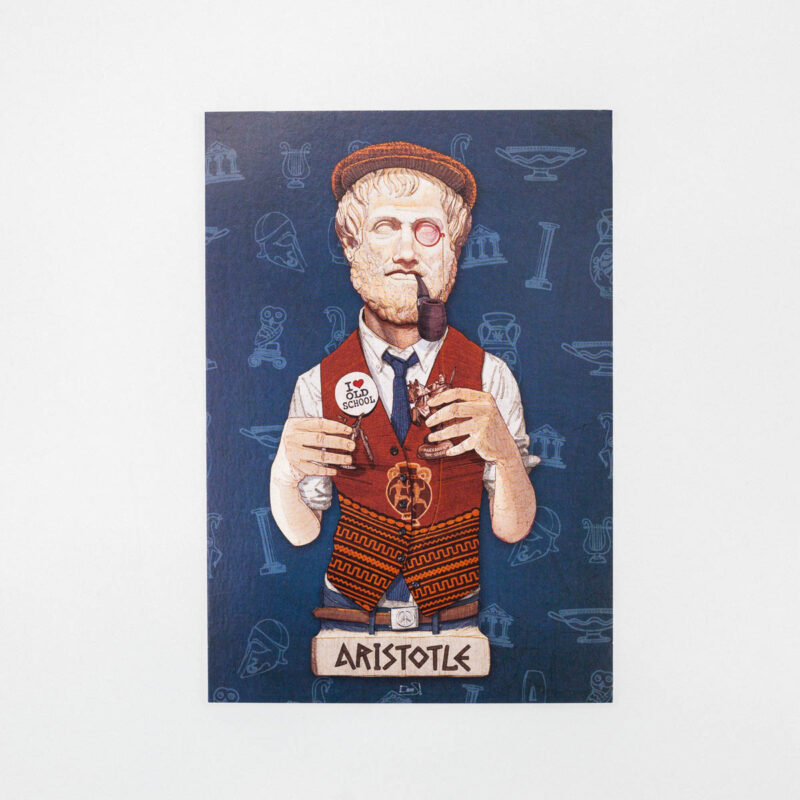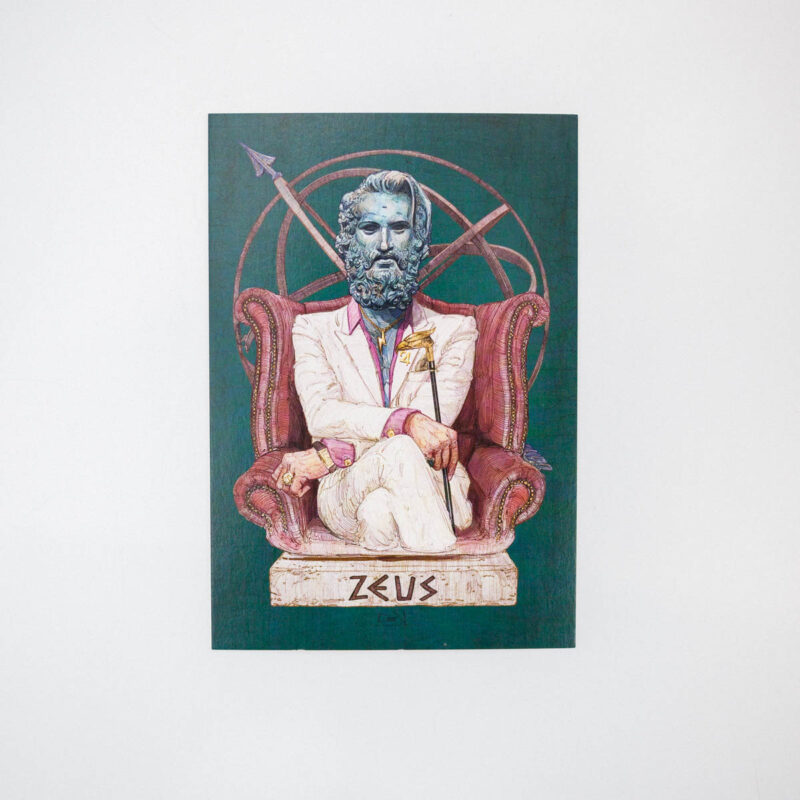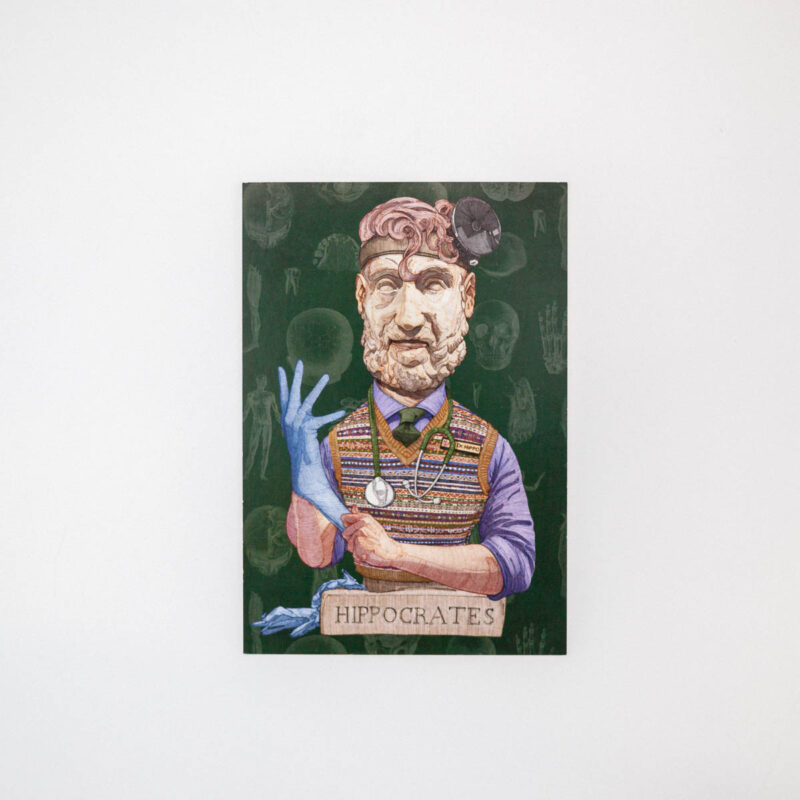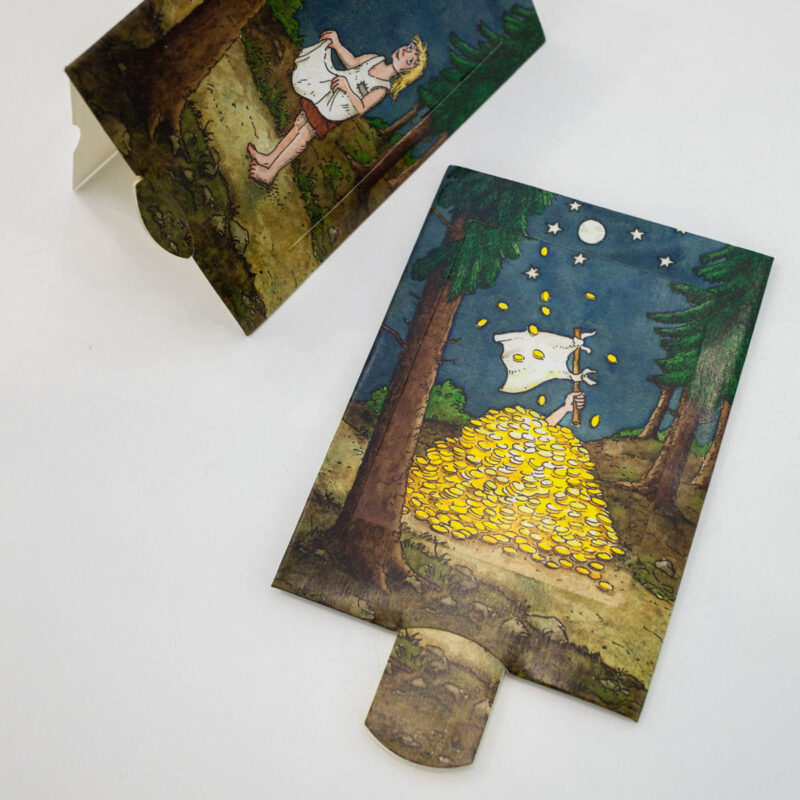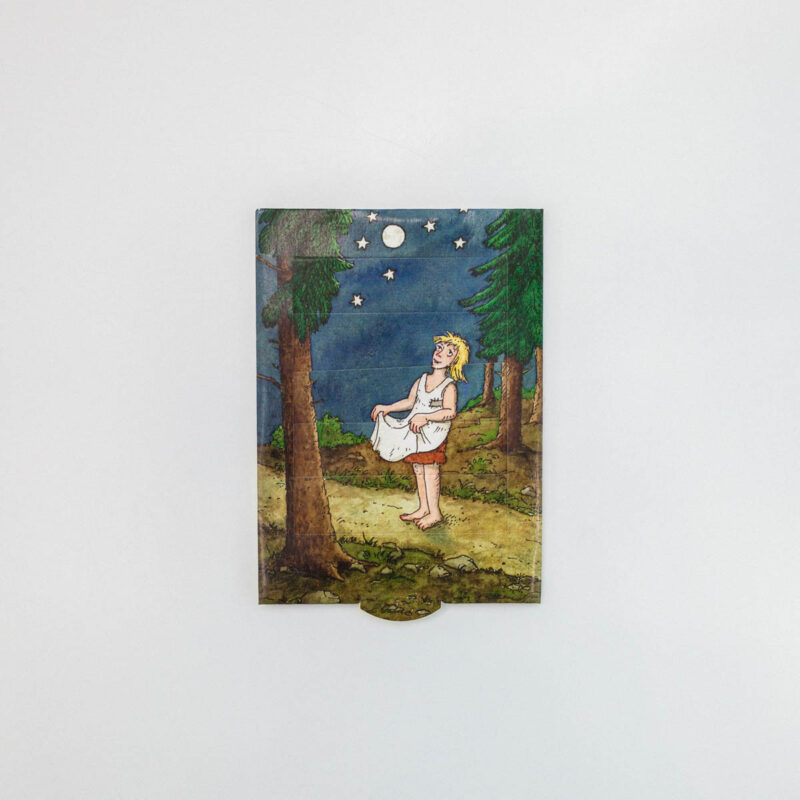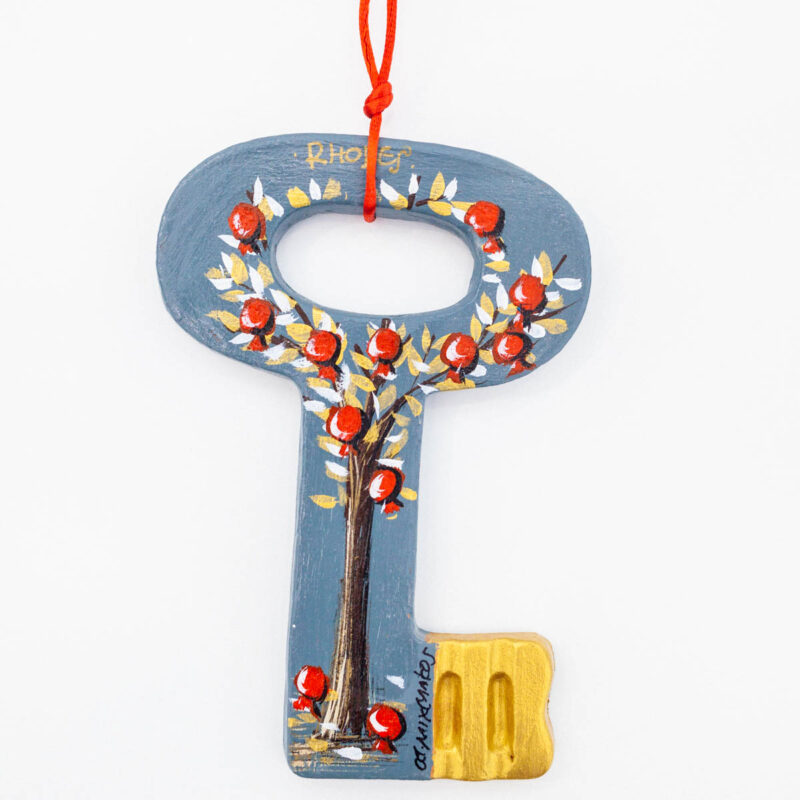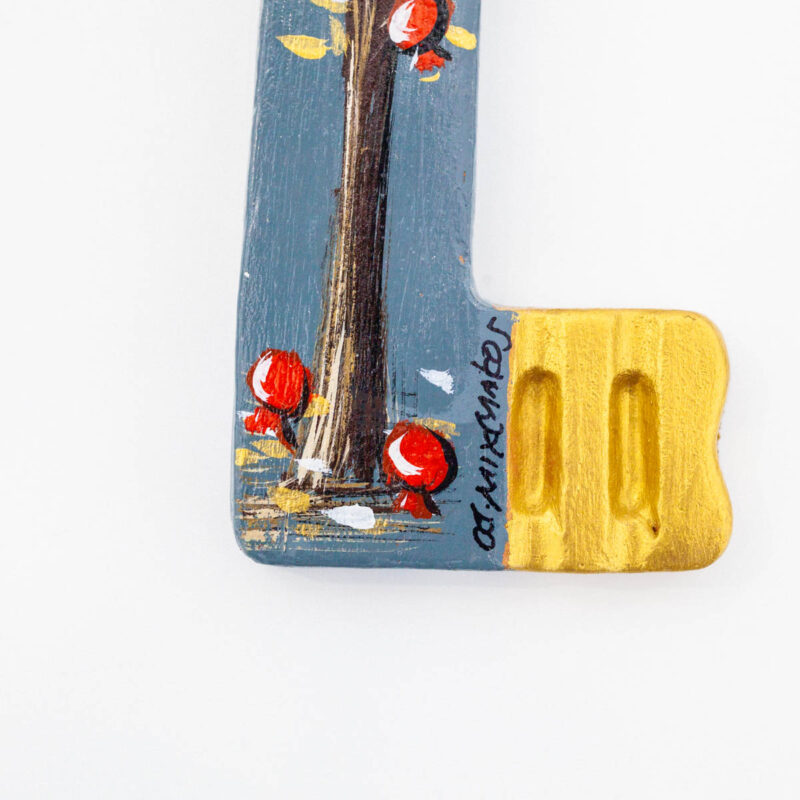KART POSTAL – DIJONISOS
0.90 €
Cart Postal with Dionysus from the “Wise Reinvented” series of collectible illustrations.
Dionysus was the god of the vine and wine. One of the most worshipped gods in Greek antiquity.
The series was created by a well-known Greek illustrator, in collaboration with a Greek company, and includes the Gods, heroes and philosophers:
Zeus, Poseidon, Artemis, Aphrodite, Dionysus, Odysseus, Socrates, Aristotle, Hippocrates, Pythagoras.
DIMENSIONS: 11×16 cm
Description
Cart Postal with Dionysus from the “Wise Reinvented” series of collectible illustrations.
Dionysus was the god of the vine and wine. One of the most worshipped gods in Greek antiquity.
The series was created by a well-known Greek illustrator, in collaboration with a Greek company, and includes the Gods, heroes and philosophers:
Zeus, Poseidon, Artemis, Aphrodite, Dionysus, Odysseus, Socrates, Aristotle, Hippocrates, Pythagoras.
DIMENSIONS: 11×16 cm
More information about Dionysus:
Dionysus, son of the god Zeus, belongs to the minor but important deities of the ancient Greek pantheon, as his cult had a significant influence on the religious events of the Greek territory.
Although he is not an Olympian god, he is represented together with the Olympians.
He is sometimes depicted sitting to the right of his father at the Olympian orbs.
Dionysus as a mythological entity “is neither a child nor a man, but an eternal adolescent, occupying a place between the two”.
In this form, it represents “the spirit of energy and transformative power of the game” full of cunning, deception and strategies that suggest either divine wisdom or the archetype of the Trickster, present in almost all mythologies of the world.
In Greek mythology, Dionysus is born from his father’s thigh in Thebes, where he spent his childhood, and is delivered to twelve nymphs or water spirits, the Hyades, who become the nurturers of the divine child.
Later, in gratitude for their service, the Hyades were elevated to the celestial firmament where they shine as the constellation of Hyades.
Dionysus is also associated with fertility, through fulfilled love.
The god wanders through Egypt and Syria, maddened by the hatred of Hera.
He is treated by Rhea in Phrygia. Rhea, too, is the one who teaches him the ritual worship and defines the dress of the god and his Maenadian followers.
The sequence of the god is completed with the Satyrs and the Silenians.
The civilizing god Dionysus continued his wanderings, teaching the world his special rites and the cultivation of the vine.
Elsewhere he was accepted as a god, elsewhere as an adventurous man, a fact which, according to the legend, caused similar reactions on his part,
favoring friends and punishing enemies.











